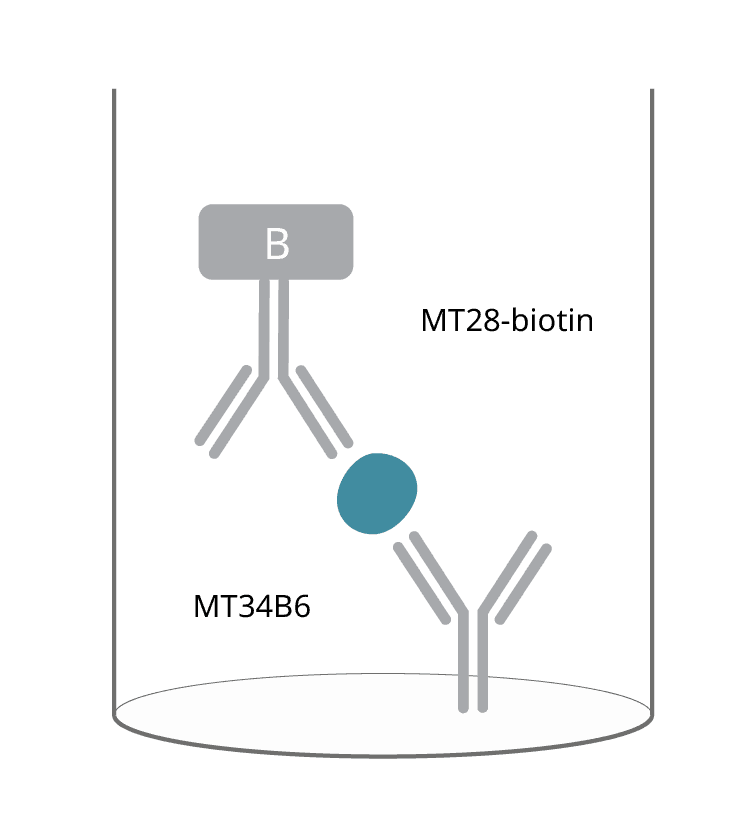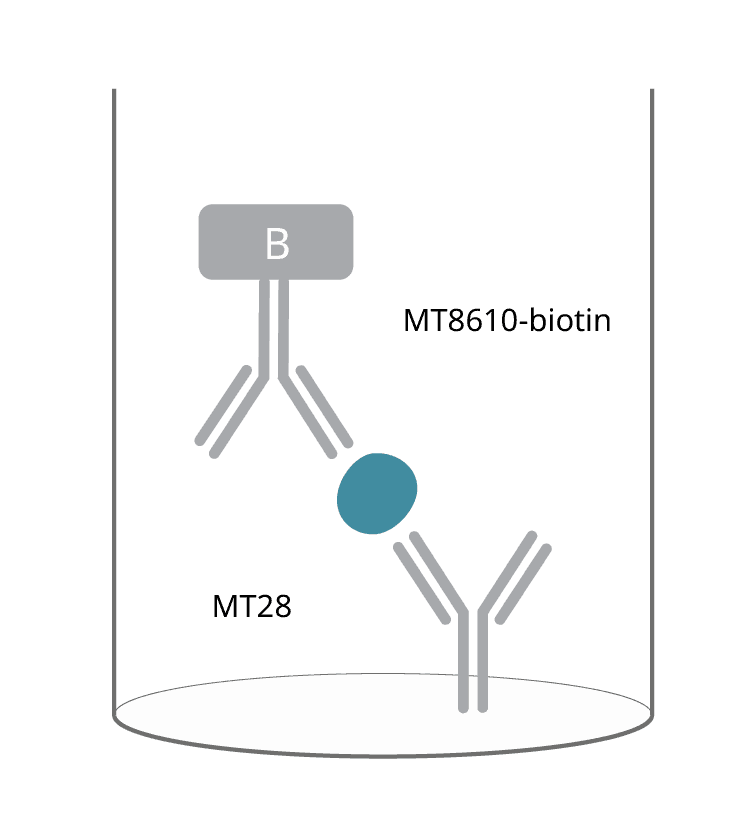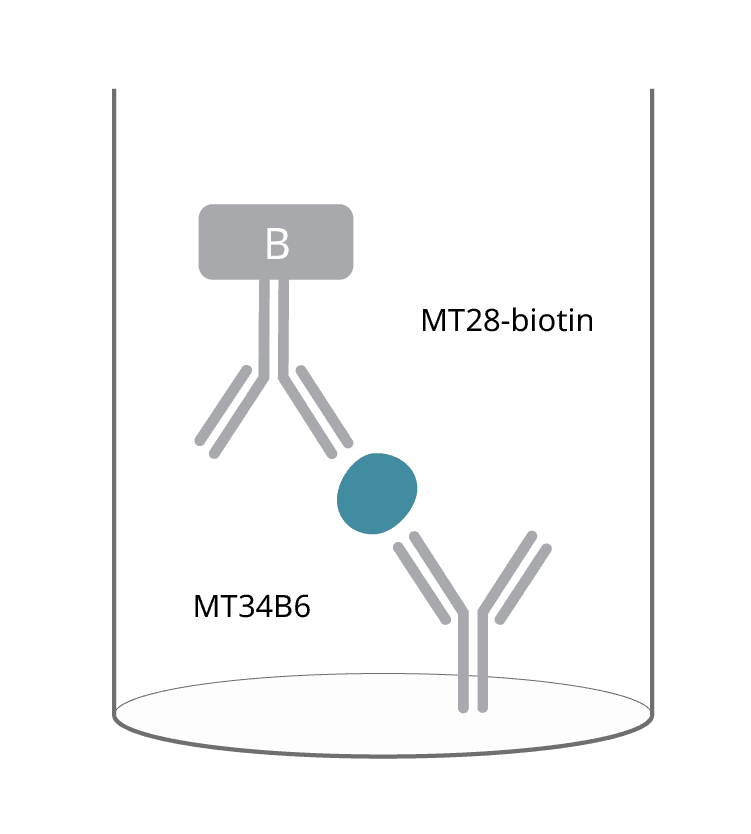ELISpot Plus: Human Granzyme B (ALP)
ELISpot Plus: Human Granzyme B (ALP)
Special offer
You may add any of these complementary products at a reduced price.
- Reactivity:
- Application:
- Plates:
$300
$240- Reactivity:
- Application:
- Plates:
$545
$436This offer is valid when purchasing ELISpot Plus: Human Granzyme B (ALP) or other qualifying products.
Components
| Plate | Pre-coated ELISpot plate, white MSIP (mAb MT28) |
| Detection mAb | MT8610, biotin |
| Enzyme conjugate | Streptavidin-ALP enzyme conjugate for ELISpot |
| Substrate | BCIP/NBT-plus substrate for ELISpot |
In stock
Delivery 4-9 business days
Shipping $0
Complementary products
Complementary products
Selecting the appropriate mAbs is key to effectively detecting human Granzyme B, a critical serine protease secreted by cytotoxic T cells and natural killer cells. This mAb guide describes which combination of our Granzyme B mAbs should be used in different immunoassays.
Application guide: ELISA
Our human granzyme B ELISA kits can be used to detect the important cytokine in solution, whether it be in serum, cell culture media, or plasma samples.
Capture mAb: MT34B6, unconjugated
Detection mAb: MT28, biotin
Application guide: ELISpot
Our human granzyme B ELISpot kits can be used to detect the important cytokine directly upon secretion by T cells.
Capture mAb: MT28, unconjugated
Detection mAb: MT8610, biotin
Application guide: FluoroSpot
Our human granzyme B FluoroSpot kits can be used to detect the important cytokine directly upon secretion by T cells alongside other analytes in the multiplex format.
Capture mAb: MT34B6, unconjugated
Detection mAb: MT28, biotin
Get inspired!
Make sure to check out how researchers have used Mabtech's human Granzyme B ELISA, ELISpot, and FluoroSpot kits in everything from vaccine development to SARS-CoV-2 research. You can find it all in our Publication database.
Granzyme B
| Analyte description | Granzyme B is a serine protease released by the cytoplasmic granules within cytotoxic T cells and NK cells. Granzyme B will act together with perforin and other cytotoxic mediators to induce target cell death by apoptosis. |
| Alternative names | Granzyme B, GzmB, GrB, GrzB, C11, CCPI, CGL-1, CGL1, CSP-B, CSPB, CTLA1, CTSGL1, HLP, SECT |
| Cell type | T cell, Tc, Th1, NK cell |
| Gene ID | 3002 |



